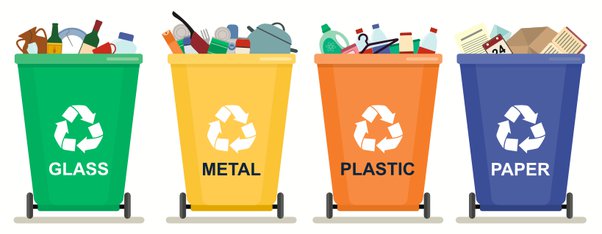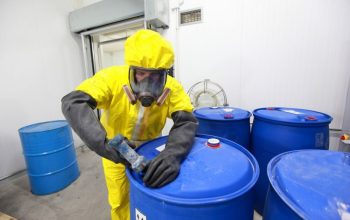It is possible to describe waste management as the entire process of managing waste, from collecting and disposing of the garbage to recycling or monitoring.
A waste in wastes management refers to any material that is undesired or unusable because of human activities. When it comes to disposing and managing garbage there are three main types: liquid, solid or gaseous.
Additionally, there are a number of other sorts of waste, such as commercial and industrial wastes and domestic waste. Some types of garbage, like radioactive and chemical waste, pose a danger to the environment or human health. Hazardous waste is the name given to certain sorts of garbage.
Reduce the harmful effects on the environment or human health of waste by implementing proper waste management. Municipal solid waste (MSW) is generated by commercial, industrial, and residential activity and accounts for a significant portion of trash management
Waste Management’s Historically Significant Developments
Since the dawn of time, humanity have produced a vast amount of waste. Industrialization and a rise in the number of people living in cities in Europe were both factors contributing to a spike in crime. Waste began to accumulate in the streets due to lack of clearing rules, posing a health and hygiene threat to the city’s residents
There was a significant increase in the amount of waste to be disposed of, which led to the establishment of incineration plants. Other cities in the Europe & North America began implementing similar garbage management systems around the beginning of twentieth century.
In contrast, waste management in today’s world varies greatly from country to country, area to region, or sector to sector, such as the industrial or residential sectors.
Disposal And Recycling
Everything that determines if a substance is no longer useful or can be disposed of properly is included in the definition of waste creation.
On-Site Storage, Processing, And Handling
Use of dust bins & installing them in places where most trash is generated are two examples of post-waste actions that make it easier to collect rubbish.
Disposal Of Waste
Collection of waste is a step in the waste management process. When it comes to collecting trash, this includes the positioning of bins, as well as making sure that trash trucks get at their destination in a timely manner.
Transporting And Transferring Waste

Transfer and transportation of garbage is the element of waste management that focuses on all of the actions involved in transporting waste from smaller waste collection location to larger regional waste disposal station Waste transport vehicles are essential for transportation.
Waste Management And Recycling
Facilities, processes and equipment that really are necessary for the recovery and recycling of waste are included in this section. This section is also designed to enhance the performance of other waste management aspects and activities.
Getting Rid Of Junk
The ultimate steps in waste management is waste disposal, which includes all of the operations required for a methodical disposal. You’ll learn about the many techniques of trash disposal in the following section.
Disposal Techniques For Solid Waste
Here, you can learn about the most common trash disposal procedures utilised in the industry.
Incineration
Combustion is another term for the waste disposal process known as incineration. Municipal solid wastes is burned at a high temperatures in the incineration process. A gaseous product and other materials are produced as a result of this operation.
In comparison to the landfill approach, incineration has the advantage of reducing waste volume by up to 30%. This reduces the amount of space occupied by waste and provides an alternative to landfills. The lack of landfill space is one of the primary reasons incinerators are so popular.









